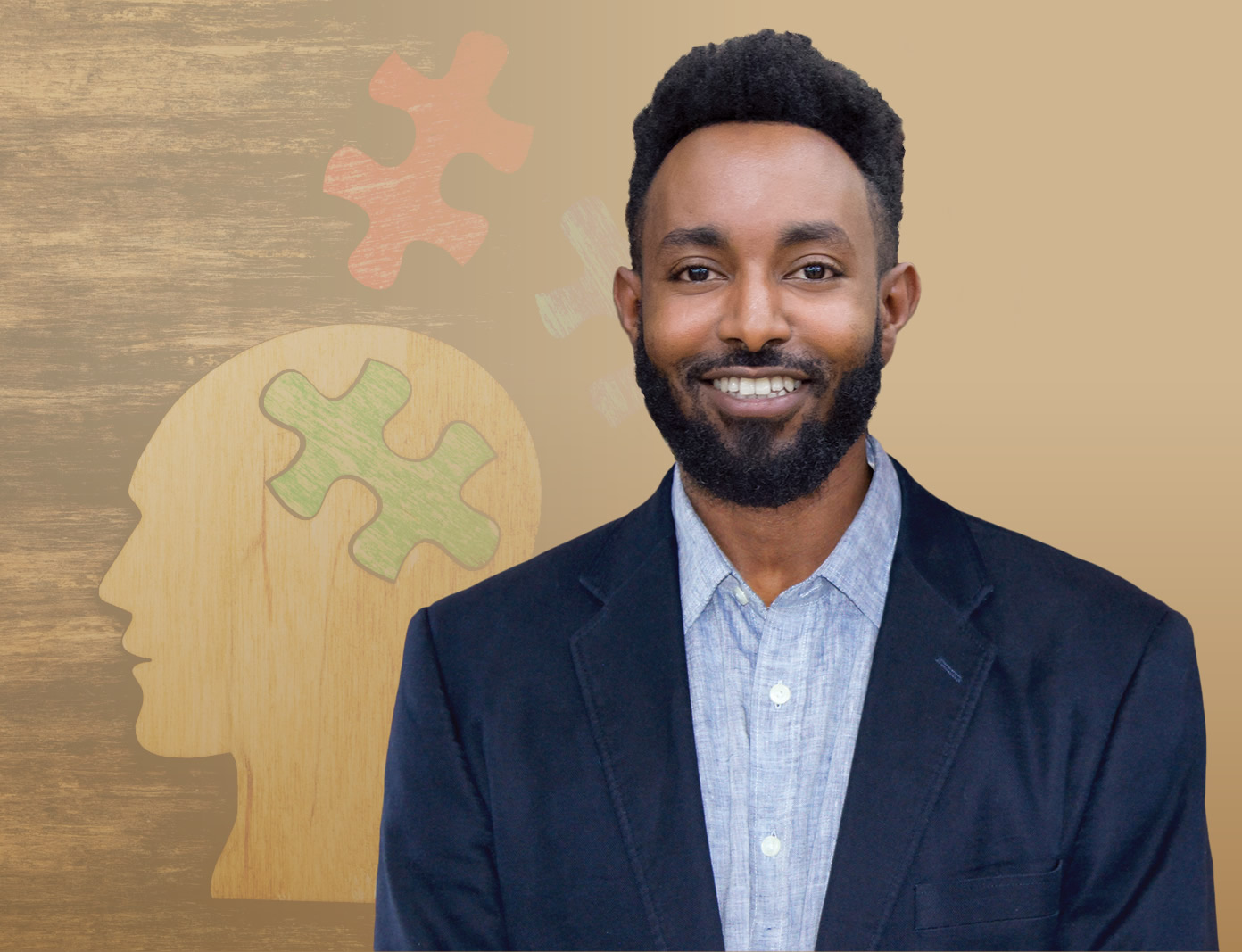 HHP - Update me in site_config > General Configuration
HHP - Update me in site_config > General Configuration
Trying to Make Sense of Irrational Behavior

Pictured: Neo Gebru (Ph.D. student, Health Education & Behavior)
There were 56,400,000 deaths in 2015, according to the World Health Organization. Of those, approximately two-thirds were attributed to noncommunicable diseases, such as tobacco use, physical inactivity or alcohol overuse, which are primarily driven by behavioral choices. There are many fields that try to address this issue from various angles. For instance, medicine heals the ill, public health disseminates health messages to the masses, public policy sets laws and regulations (hopefully) to ensure healthcare, and business studies consumer behavior. Of these, economics has been used to predict people’s behavior. However, in the last few decades, there has been a move away from the assumptions of economics, chiefly that people are rational. What has resulted is behavioral economics, a more ecologically valid approach.
As a new graduate student, I’m still making my way through the literature. The more and more I dive into the world of behavioral economics, which weds the fields of psychology and economics in the study of human behavior, the more and more I realize that the two fields have so much in common but actively share very little. It is challenging to find a succinct description of what a behavioral economist specifically does besides to say that they are behavioral scientists who study judgement and decision making in all aspects of life. The field has examined varied human behavior such as consumer choices to addiction to health care insurance decisions, organ donation, retirement savings, and the list goes on.
Our department studies behavioral economic approaches in basic and applied research and explores health behaviors such as addiction, obesity and risky behaviors. The gap that behavioral economics is trying to close between these two fields, psychology and economics, which also incorporates concepts from business, marketing, public health, sociology and public policy, among others, is wide. It will take years to build the bridge, and it starts with the words we use. What a psychologist might call relapse when discussing addictions, an economist might call a preference reversal. Happiness or benefit gained in psychology is utility in economics and so on. Thought leaders in these two fields have studied, philosophized, hypothesized, theorized and tested human behavior in several ways for decades. However, it seems to me that their collaborative efforts have been inhibited because they are essentially speaking different languages. This, I believe, is at the heart of the lack of translational and collaborative work that has stifled growth and development of practical approaches in both fields.
Another divide is the basic assumptions between the fields. Economics assumes that people are rational beings. However, psychological studies have shown time and again that people are irrational. Or as Dan Ariely, professor at Duke University, captured with the title of his book: “Predictably Irrational.” This predictability in our irrational decision making is largely the focus of behavioral economics. Assuming that people are perfectly rational under all circumstances, as we know, is of course not accurate. Richard Thaler, recipient of the 2017 Nobel Prize in economics, emphasized the need for the study of decision making on an episode of NPR’s Hidden Brain. Thaler said, “economists might as well be studying unicorns,” because people are not rational beings. For the field of economics to be impactful to its fullest extent, we need to introduce the irrationality of humans to its models. And that is what behavioral economics aims to achieve. This transdisciplinary field has come to fruition over the past few decades and has made several tangible impacts in several fields.
We can see that there are several behavioral economic concepts that have been applied to the area of human health and behavior. These include the use of incentives and rewards in changing people’s behavior to get them to stop smoking or start exercising, setting defaults in policy setting to increase organ donations or retirement savings and discounting delayed rewards in long-term decision making. Behavioral economic concepts can be found in all aspects of our daily lives, sometimes when we are not even aware of them.